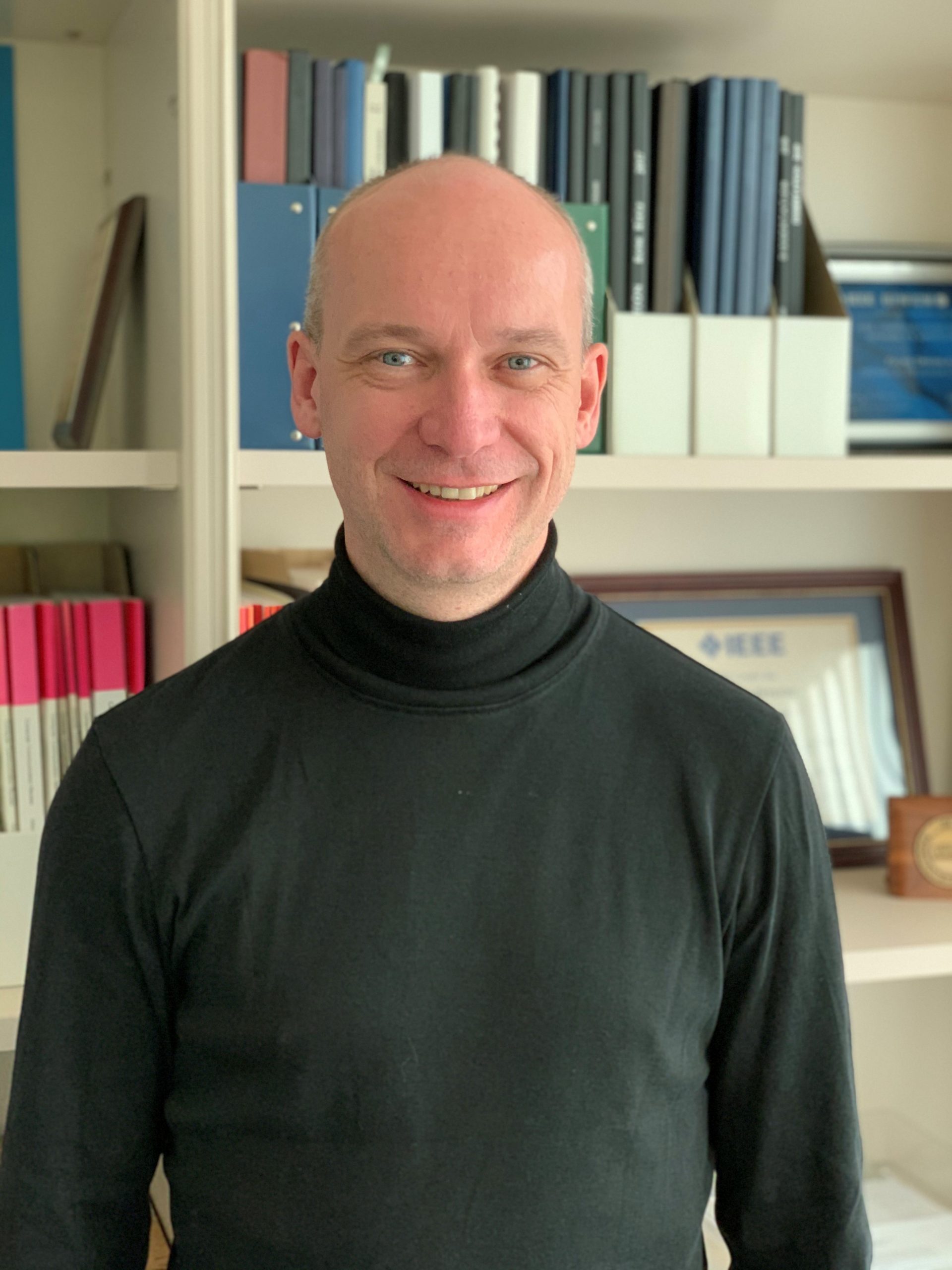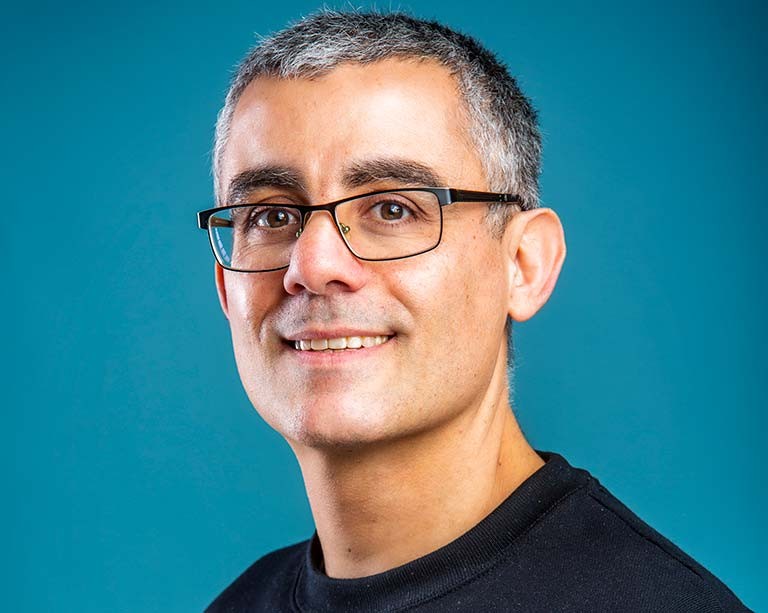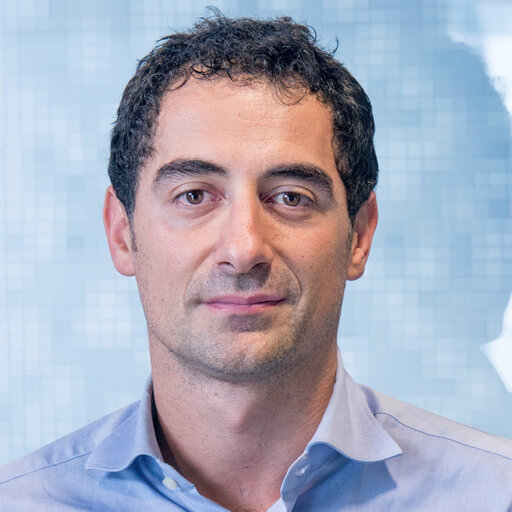Keynotes
| Prof. Falko Dressler |
Prof. Manlio De Domenico |
|---|---|
| Prof. Chadi Assi | Prof. Beniamino Russo |
Prof. Falko Dressler

Falko Dressler is full professor and Chair for Telecommunication Networks at the School of Electrical Engineering and Computer Science, TU Berlin. He received his M.Sc. and Ph.D. degrees from the Dept. of Computer Science, University of Erlangen in 1998 and 2003, respectively. Dr. Dressler has been associate editor-in-chief for IEEE Trans. on Mobile Computing and Elsevier Computer Communications as well as an editor for journals such as IEEE/ACM Trans. on Networking, IEEE Trans. on Network Science and Engineering, Elsevier Ad Hoc Networks, and Elsevier Nano Communication Networks. He has been chairing conferences such as IEEE INFOCOM, ACM MobiSys, ACM MobiHoc, IEEE VNC, IEEE GLOBECOM. He authored the textbooks Self-Organization in Sensor and Actor Networks published by Wiley & Sons and Vehicular Networking published by Cambridge University Press. He has been an IEEE Distinguished Lecturer as well as an ACM Distinguished Speaker. Dr. Dressler is an IEEE Fellow as well as an ACM Distinguished Member. He is a member of the German National Academy of Science and Engineering (acatech). He has been serving on the IEEE COMSOC Conference Council and the ACM SIGMOBILE Executive Committee. His research objectives include adaptive wireless networking (sub-6GHz, mmWave, visible light, molecular communication) and wireless-based sensing with applications in ad hoc and sensor networks, the Internet of Things, and Cyber-Physical Systems.
Title: Resilient Worlds - Turning First Responders into Network Infrastructure
Abstract:
Disruptions and major outages of our communication infrastructure pose a very realistic thread to our mission-critical infrastructure and may also severely impact our daily life. Lessons learned from previous natural disasters helped identifying problems but also solution spaces. In general, modern 5G networks promise to provide all means for communication in this domain, particularly when integrating mobile edge computing (MEC). From the perspective of two research concepts, we discuss the limitations when it comes to resilience in disaster scenarios. In particular, we will show how first responder trucks can be turned into mobile base stations to provide network coverage even when infrastructure such as the energy grid or the 5G base stations are down. We also discuss the idea of virtualized edge computing (V-Edge) that will enable edge computing even if the 5G edge servers are offline, overloaded, or simply not deployed in sufficient numbers.
Prof. Manlio De Domenico

Manlio De Domenico is Associate Professor of Physics at the Department of Physics and Astronomy "Galileo Galilei", University of Padua (Italy) where he also directs the Complex Multilayer Networks Lab. He is a member of the Scientific Board of the Padua Neuroscience Center and Program Director of the Padua Center for Network Medicine. He is the national coordinator of the Italian Chapter of the Complex Systems Society. De Domenico has modeled and analyzed a variety of complex systems, from protein-protein interaction networks to socio-technical systems and large scale interconnected infrastructures. His research focuses on collective phenomena emerging from natural and artificial interdependent systems, with contributions to multiscale modeling and analysis of multilayer networks, their structure, dynamics, information capacity and resilience to external shocks and internal failures. For his work he received the Young Scientist Award for Socio- and Econophysics from the German Physical Society (2020), the IUPAP Young Scientist Award on Statistical Physics from the IUPAP-C3 (2019), the USERN Prize in Formal Sciences from USERN (2017) and the Junior Scientific Award from the Complex Systems Society (2016). He has published more than 160 scientific papers on peer-reviewed journals, attracting 19500+ citations (Jun 2023, Google Scholar).
Title: Robustness and resilience of complex interconnected systems: theory and applications
Abstract:
Complex interconnected systems, spanning from cells to societies, are pervasive, and their analysis relies on the mathematical and computational framework of complex networks. Understanding the robustness of these systems to internal failures and external shocks is of paramount importance. The response of complex interconnected systems to these types of perturbations is the subject of this talk. We will start by providing an overview of the analytical framework currently adopted in the case of classical networks, encompassing a range of techniques, from purely theoretical approaches to cutting-edge AI-based methods. Next, we will delve into the analysis of robustness of multilayer networks, i.e. systems characterized by multiple interacting or interdependent systems. Finally, we will mention the state of the art for techniques that go beyond traditional structural analysis, e.g., by looking at how information flow among system’s units is disrupted. Applications of this framework to a variety of systems of biological, social and engineering interest will be discussed.
Prof. Chadi Assi

Dr. Chadi Assi (Fellow of the IEEE) is a Professor with the Concordia Institute for Information Systems Engineering at Concordia University, Montreal, Canada, where he currently holds a Tier I University Research Chair. He received his MASc and Ph.D. degree from the Graduate Center, City University of New York. Before joining Concordia University in 2003, he was a visiting scientist (2002-2003) at Nokia Research Center, Boston, working on quality-of-service in optical access networks. Dr. Assi received the prestigious Mina Rees Dissertation Award from the City University of New York in August 2002 for his research on wavelength-division-multiplexing optical networks and lightpath provisioning. Dr Assi served on the Editorial Board of several IEEE journals and is currently serving as an Associate Editor for the IEEE Transactions on Vehicular Technology, IEEE Transactions on Mobile Computing and IEEE Transactions on Network and Service Management. His current research interests are in the general areas of Networks (wired and cellular), network design and modeling, network optimization, and cyber security.
Title: Ensuring a Resilient and Secure EV Charging Infrastructure for Sustainable Transportation
Abstract:
The increased greenhouse gas emissions and their threat on the environment are fueling society's embrace of a green mindset. As part of their fight against climate change, governments are diligently working on shifting the traditional transportation system to a greener one, mainly driven by Electric Vehicles (EVs). EVs have become a major component of the global push to combat climate change, owing to their ability to reduce the emissions of the transportation sector especially when coupled with renewable energy resources. To support the exponential rise in EV numbers, EV Charging Stations (EVCSs) are being deployed rapidly by operators and manufacturers alike. As a result, EVCSs have become an indispensable element of the transportation system. This highlights the need for a reliable and secure ecosystem to support the charging needs of EVs and achieve a sustainable transportation sector. Our research group studies the EVCS ecosystem security through examining its different components. The importance of the security of this ecosystem originates from the crucial service it provides and its connection to critical infrastructure such as the power grid. Our work focuses on uncovering the vulnerabilities of the EV ecosystem that can allow attackers to destabilize the power grid as well as developing to secure this ecosystem and Machine/Deep Learning intrusion/attack detection.
Prof. Beniamino Russo

PhD in Civil engineering, Professor of Hydraulics and Hydrology at the Universitat Politècnica de Catalunya - BarcelonaTech (UPC), Scientific Advisor of AQUATEC (AGBAR - VEOLIA Group) and Coordinator of EU ICARIA project (Improving Climate Resilience of Critical Assets). Author of almost 200 papers published on peer reviewed journals and international conferences proceedings in the field of flood risk management, urban drainage and urban resilience. His main interests in the research fields include urban drainage; inlet efficiency; flood risk assessment; urban resilience; combined sewer overflows (CSOs).
Title: New trends about hazard and risk flood modelling: EU RESCCUE and ICARIA projects
Abstract:
According to official insurance data, more than 50% of tangible damage in Spain can be related to urban pluvial floods. Furthermore, the availability of physical information about drainage systems is progressively increasing (more than 50% of the Spanish town and cities developed Urban Drainage Master Plans, more than 75% in case of big cities) offering the possibility to bridge the gap between river and pluvail flood modelling with special focus on complex systems where ephemeral water courses drain into channelled pipes connected to sewers or drain into main roads and avenues. In order to achieve a reliable and comprehensive flood risk assessment, cutting-edge 1D/2D coupled flood models are essential with the possibility to use social media crowdsourcing data during the phases of set up, calibration and validation. These models should take into account flow transferring between 1D and 2D layers through a proper characterization of surface drainage elements. 1D/2D calibrated and validated models allow to achieve realistic hazard assessment and hazard maps based on tailored hazard criteria related to risk receptor. Possible use of coupled models also allows to feed impacts models and perform comprehensive risk assessment including direct and indirect damages, as such as cascading effects. These aspects were treated within EU RESCCUE project (2016-2020), while another ongoing project is focusing on multi-hazard and compound events and the use of asset level modelling to improve climate resilience at regional level.